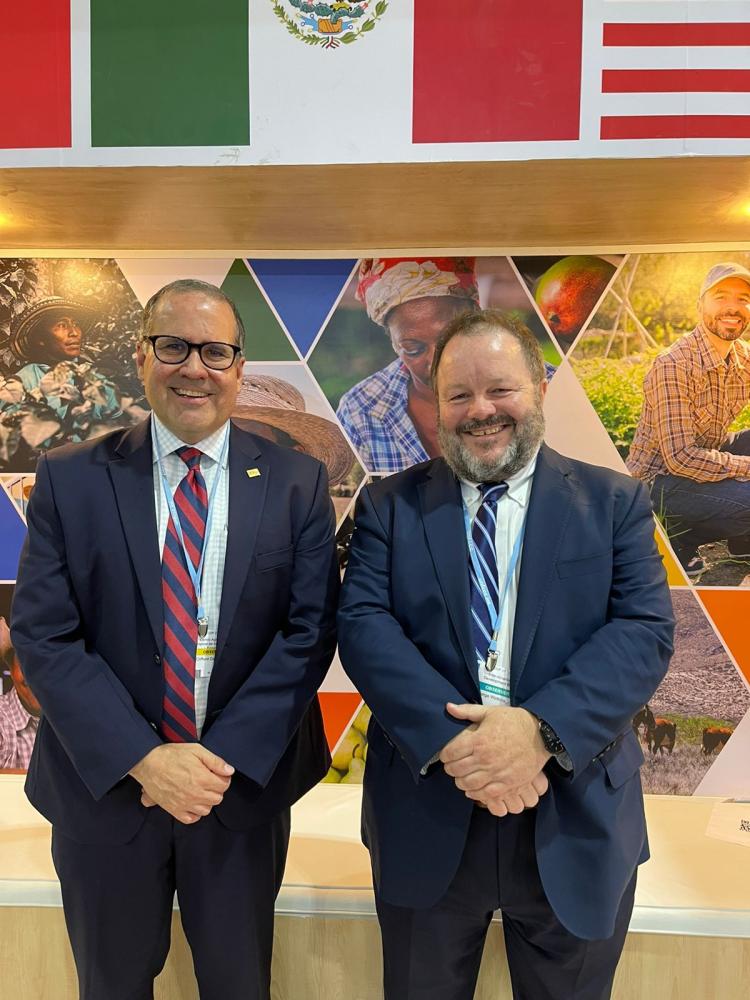The main objectives of the platform will be to develop a shared vision for sustainable livestock farming in the hemisphere and to promote policies and lines of action to assist current livestock farming systems in transitioning towards systems characterized by greater economic, social and environmental sustainability.

Sharm El Sheikh, Egypt, 18 November 2022 (IICA) – At COP27, the Inter-American Development Bank (IDB) and the Inter-American Institute for Cooperation on Agriculture (IICA) launched an initiative to create a Platform for Sustainable Livestock Farming in the Americas, as part of the efforts to drive resilient and inclusive development in the region.
The main objectives of the platform will be to develop a shared vision for sustainable livestock farming in the hemisphere and to promote policies and lines of action to assist current livestock farming systems in transitioning towards systems characterized by greater economic, social and environmental sustainability.
The sustainable livestock farming platform will initially include Southern Cone countries (Argentina, Brazil, Uruguay, Paraguay and Chile), given that the region accounts for 38.5% of global beef exports, 27.5% of the world’s cattle population and 25.2% of world’s beef production.
Lloyd Day, Deputy Director General of IICA, and Graham Watkins, Chief of the Climate Change and Sustainability Division at IDB, announced and shared details on the initiative.
The platform will serve as a key instrument to give greater visibility to livestock farming systems in the Americas; provide information, based on regional scientific evidence, on the social, economic and environmental dimensions of regional livestock farming; share and scale up innovative sustainable livestock farming experiences in the Americas; measure and monitor regional progress towards greater levels of sustainability; and, lastly, improve the strategic positioning of countries of the Americas in international forums, summits and meetings.
Approach and scope
The multilateral platform will be structured around three main axes:
- Value chain approach
- Comprehensive vision for sustainability
- Metrics-based
The first axis considers the implications for sustainability of relations between the different links in the value chain. Technical and political discussions on the future of livestock farming tend to focus on the primary link, despite the fact that slaughterhouses, retailers and other links in the value chain also play a key role in building a vision for sustainable livestock farming.
The second axis emphasizes the fact that sustainability is a comprehensive, dynamic concept that evolves based on society’s demands. In Southern Cone countries, the social and economic aspects of livestock farming are as relevant as environmental aspects, which predominate in international forums.
Lastly, the use of indicators and metrics is crucial to operationalize the abstract concept of sustainability and monitor progress towards achieving greater sustainability in the value chain.
Likewise, the use of metrics allows for identifying possible trade-offs in the social, economic and environmental dimensions in pursuit of a vision for sustainable livestock farming.
More information:
Institutional Communication Division.
comunicacion.institucional@iica.int
